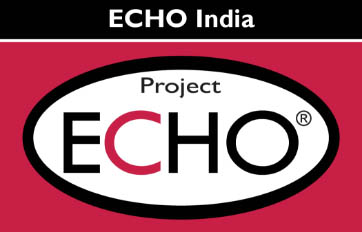“They always somehow feel mothering comes naturally. You are supposed to be a nurturing mother just because you were born a female. And that has never been true. We need much more support. We need much more acceptance. Too many mothers have harmed themselves. Even one is too many.”
— Dr Sandhya Thumsi, Counselling Psychologist, Bengaluru
Pregnancy and childbirth are often wrapped in celebration. But the quiet complexities that unfold in a woman's mind and body during this time remain largely unspoken. A woman’s body goes through intense transformation. Nausea and fatigue give way to restless nights and swelling limbs. Blood pressure fluctuates. Emotions run high and deep. And yet, it is after the birth of a child that the most seismic changes occur.
There is physical healing. There is hormonal chaos. There is the sudden expectation to nurture another life without pause. And for many, there is isolation. Beneath the congratulations and garlands lies a quieter truth. Becoming a mother is not always a moment of joy. It can be disorienting. It can be terrifying. It can break you.
The World Health Organization reports that nearly one in five women globally will experience a mental health condition during pregnancy or in the year that follows. Among them, twenty percent are likely to have suicidal thoughts or attempt self harm. This is not only a public health concern. This is a humanitarian call for care.
Dr Prabhat Chand, mental health expert and professor of psychiatry at NIMHANS, Bengaluru, explains: “This is a very challenging area. There is a huge need for perinatal mental health. Healthcare professionals need guidance from gynecologists, obstetricians, nutritionists, and other specialists to identify common perinatal mental health problems, whether it is postpartum blues, depression, psychosis, intimate partner violence, or relationship distress.”
In India, stigma and lack of awareness further complicate the problem. Women are often expected to endure. To stay strong. To carry on. But emotional pain does not disappear when it is dismissed. Left untreated, perinatal mental health conditions can persist for years. They can damage mother–infant bonding. They can lead to poor health outcomes for both. And they can push women into the margins of care.
If the first step is acknowledgment, the next must be action.
Building capacity in perinatal mental health is not an auxiliary measure. It is central to maternal and child well-being.
When primary care physicians, nurses, midwives, and community health workers are equipped to understand perinatal mental health, they become powerful allies in a woman’s journey.
They can:
- Detect early signs like persistent worry, sleep disturbances, or emotional withdrawal
- Use standard screening tools effectively and empathetically
- Offer supportive counselling or refer promptly to mental health professionals
- Integrate mental health checks into routine antenatal and postnatal care
- Normalize help-seeking behavior in communities through education and awareness
What is needed is a shift.
A shift in how we listen.
A shift in how we train those who provide care.
A shift in how we acknowledge the emotional cost of bringing new life into the world.
Capacity building of healthcare providers is a critical first step.
When physicians, nurses, psychologists, counsellors, and community health workers are trained to recognize early signs of distress, they become lifelines. When they use standardized tools for screening and referral, they help prevent escalation. When they approach mothers with empathy and not judgment, they create safe spaces for truth.
These are not quick fixes. They require time. They require effort. And they require systems that can sustain change.
To address this, ECHO India and NIMHANS have partnered to build the capacity of frontline healthcare workers across the country. Through a virtual, case-based learning approach rooted in the ECHO Model, the initiative creates a space where providers learn from specialists and from one another. Sessions cover the spectrum of perinatal mental health, including pharmacological treatment, psychosocial support, trauma-informed care, and mother–infant bonding.
At the heart of it lies the understanding that mental health is not separate from maternal health. It is maternal health.
This is not just about reducing suicide rates or easing postpartum depression. It is about restoring dignity. It is about building health systems that see women not just as vessels for childbirth but as human beings whose emotional, mental, and psychological wellness matters.
It is about letting mothers know that they are not alone.
To learn more about how ECHO India and NIMHANS are working to transform perinatal mental health care across India, visit: https://vknnimhans.in
